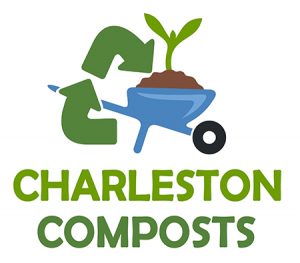City of Charleston launches composting pilot program
January 15, 2022Beginning January 23, City of Charleston residents can participate in a new pilot program to recycle food scraps for free at designated drop sites. The food scraps will then be sent to the Bees Ferry Compost Facility instead of the landfill.
What is composting? Composting is the natural process of recycling organic matter, such as food scraps, into a valuable soil amendment. The resulting decomposed matter, which looks like dark fertile garden soil, is called compost. This material is rich in nutrients and can be used as a natural fertilizer in gardening, agriculture, landscaping and more.
Why it matters: Organic materials don’t belong in the garbage. Charleston residents throw away more than 15,000 tons of food scraps each year, making up one quarter of the City of Charleston’s collected waste. By diverting food scraps from the landfill, composting cuts down on the amount of garbage collected, lowering expenses.
Landfills make up 17% of the United States’ methane emissions–a gas 20 times more effective at trapping heat in the atmosphere than carbon dioxide. Composting helps reduce these harmful greenhouse gas emissions from landfills and helps protect our air and water from pollution, contributing to three of the City’s Climate Action Plan goals.
By nourishing the soil, compost also helps increase the stormwater absorption capacity of healthy parks and gardens.
Finally, compost reduces the need for expensive chemical fertilizers, makes plants healthier and can be used without harming wildlife or ecosystem health.
How to participate: Residents interested in the program must sign up at www.charleston-sc.gov/compost to participate.
A free reusable kitchen compost caddy will be available to the first 200 participants who sign up for and join one of two free compost workshops taking place on Saturday, January 22, 2022 from 11 a.m. to 12 p.m. or Tuesday, January 25 from 5:30 to 6:30 p.m. The details for the workshops are posted on the webpage; registration is required as space is limited.
Once registered, participants can take their food scraps to one of three drop sites: Ackerman Park in West Ashley, Corrine Jones Park on the peninsula or Medway Park on James Island.














